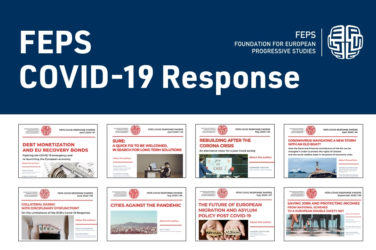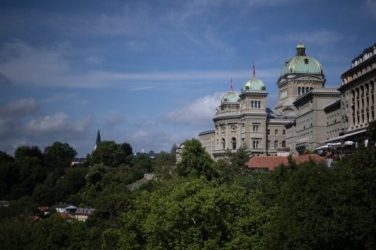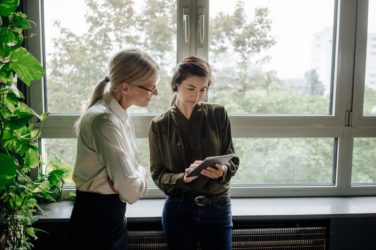Crises conceive crime. The disruptions caused, and the usual panic responses to them, create conditions which tend to favor both illegal behavior (criminal or not) and activities which, while they may not be against the law strictu sensu, are regarded by many as immoral or unjust. At the same time, COVID 19 may have strengthened defenses against some types of crime. This note is intended to offer a first view of what seems to have been happening with COVID 19, and to suggest what can be expected to occur as the COVID process continues to unfurl.
COVID CHARACTERISTICS FOR CRIME
At the simplest level, the following features of the COVID scenario can be distinguished.
First, it is a drama of public health for which no government seems to have been prepared. The lack of preparedness translates into, among other things, shortages of key products required to help combat and contain the emergency. Sudden shortages are the lifeblood of quick profits for suppliers, which may be lawful although not especially welcome to society. Yet they are also a stimulus to supply of faulty and fake products, which are not. A classic visual example of the latter is the film “The Third Man”, showing the racket in substandard penicillin in post 1945 Vienna.
Second, the accent on speed of action when there is uncertainty about the efficacy of many actions facilitates the marketing of dubious ideas and products. In some situations the supplier may genuinely be unsure of the effectiveness of the product and so proceeds with manufacture and distribution because, in effect, the buyer (government) has decided to take the risk. Where, however, the supplier is aware of significant risk but presses on and conceals the information, then there is criminal behavior. The potential rewards to fraud are thereby enhanced, at the same time as control mechanisms tend to be relaxed.
Third, the creation of “states of emergency” not only gives license to governments, but also to shrewd operators. They are able to use the restrictions to their benefit, whether through short cutting regulatory processes, obtaining temporary monopolies or squeezing out competitors less robust than themselves. Moreover, since by definition restrictions against doing things make the licenses to do them more valuable, the temptation to bribery is increased.
Fourth, although COVID has reinforced controls over many types of movement and trade, it has weakened controls elsewhere. Prior to the onset of COVID, about one third of the global economy involved illicit transactions covering people, goods, services (financial in particular) and information flows. Monitoring those transactions is difficult at the best of times; when there is a full blown emergency, restricting them is a still tougher proposition. Given that COVID arrived while austerity was still the norm in several places, especially the Euro Zone, the monitoring capacities of official entities were already limited in relation to the phenomena they were required to manage. That deficit has now been sharply accentuated.
Fifth, and as awful as it sounds, the current state of the law can allow government actions designed to try and alleviate the health crisis to be attacked as unlawful. The outstanding example of this is the growing attempt to use the processes surrounding Investor Dispute Settlement as between States and International Investors as a platform for demanding compensation from governments alleged to have violated their commitments to treat foreign investors in certain ways. At the time of writing, this author knows of at least 20 such potential demands which are being prepared by diverse legal groups on behalf of their clients. The attempts by governments to protect populations may cost them in front of courts of law.
Sixth, since the public health measures seen as most effective against the contagion danger from COVID 19 effectively led to a massive breakdown in normal economic activity, the dramatic shifts in public economic policy designed to cushion the impact of that breakdown ( and whose effects will only become clear over time) have themselves heightened the risks of deceitful claims for COVID Compensation by individuals and entities. Cases of such claims have been reported in a variety of OECD countries. Subsequent to the financial crash of 2008 and onwards, the US government set up a unit to investigate fraudulent claims of various kinds. That unit is still at work, a decade on. Thus far it has recouped roughly $11 billion, and that is one country only. It’s anybody’s guess what magnitudes the COVID crisis might generate, since the cash injections have been far more widespread geographically and on a scale greater than anything attempted in the wake of the financial crash.
Seventh, the measures chosen to control social behavior have come under increasing accusations of being unlawful, and that for various reasons. They may be alleged to violate a national constitution. They may threaten democratic institutions in different ways. They may be held to transgress limits set by international treaties. The use of tracings apps to follow possible paths of infection has been strongly challenged as a breach of privacy (it appears that the UK approach on this has just been declared illegal). It is as yet unclear whether numerous legal proceedings will follow from these accusations, though the longer social restrictions are maintained, the higher the probability that some of the claims will finish in courts of law.
Eighth, in a number of countries individuals have in fact been fined and/or prosecuted for actions contravening the anti COVID policy measures. Where tensions have run high, cases of large scale social disturbances leading to arrests and prosecutions have already occurred.
This preliminary taxonomy indicates that the COVID crisis has substantially expanded the risks of unlawful behavior, and the temptations to engage in it. Individuals, companies, and governments can all cross the line, and apparently have. Fraud and bribery are the most common crimes of crisis, and almost certainly those with the greatest financial impact. These crimes can also lead to serious impacts of a non-financial sort, including deleterious effects on public health. COVID 19 has struck at a period across the globe where democratic institutions and practices are under greater than normal threats from authoritarian tendencies within countries, and attacks from non-democratic forces. This translates into a readiness by many to oppose government measures as an assault on freedom. Some of the assertions may be justified. Yet behind them there is also often an agenda which in reality seeks to weaken the very freedoms it claims to defend.
Has COVID 19 in any way strengthened actions against crime and unlawful behavior? There seems to be little sign that it has. Anecdotal evidence suggests that, in the past months, the incidence of serious crimes may well have diminished in many countries. To that extent, police, carabinieri, gendarmerie and other law enforcement authorities might have had better opportunities to enforce the law as it existed prior to COVID. But apart from the possible reallocations of policing time, favorable impacts of COVID for the application of the rule of law are not perceptible.
The comments so far are very heavily related to things observed in OECD countries. Once a wider view is taken, the picture alters somewhat. Since the financial packages to confront the economic losses due to measures against COVID 19 are relatively and absolutely so far much smaller outside the OECD, the prospects of widespread fraud and bribery seem reduced. Certainly they may still take place, but the risks may not be so great. Similarly, given that most of the production of PPE, and the research into possible vaccines, is OECD concentrated (save for PPE supply in China and Russia), the risks on this count too may not be so high. In some places, disobedience of government orders on social behavior has incurred extreme penalties – in the Philippines, President Duterte has employed his trademark approach of ordering law enforcement officers to “kill the offenders”. In some countries, Brazil and Mexico being important examples, the governments have taken very few measures to control the spread of COVID 19. So disruptions to normal economic activity have been far fewer. The scope for law breaking has not been notably increased.
LOOKING INTO THE FUTURE
All kinds of frustrations and hopes have exploded on the screen with the onset of COVID 19. Inevitably, only some of the frustrations may be relieved and a few of the hopes realized. What this implies is that, as time passes, the profound disagreements over the directions that should be taken in political economy and in the understanding and practice of democracy are likely to become sharper. COVID 19 has been perceived as a catalyst for change, yet it serves simultaneously to reinforce opposition to it. These ever gathering storms may themselves alter the contours of the law and acceptance of it. What kinds of “collateral crimes due to COVID 19” might occur?
Peter O’Brien, Brussels, August 4, 2020





